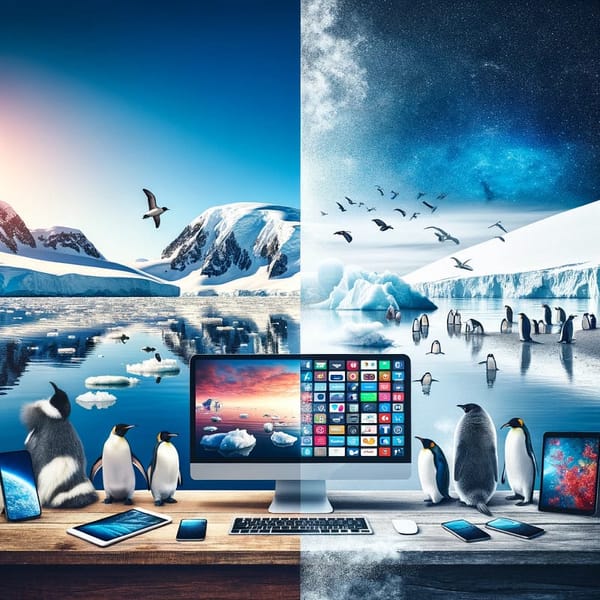Diving into John Green’s The Anthropocene Reviewed opened my eyes to how we shape our planet in so many ways. The Anthropocene is one in which we, as humans, influence (in many ways we cannot imagine) the world.
This book uncovered startling insights that radically shifted my understanding of human impact. Let me share them with you.
Take “Penguins of Madagascar,” for example. You’ve probably heard of it. Or am I to assume that? Anyways…
You might dismiss it as just another children’s film, but a particular scene near the beginning delivers a powerful message about our role in the world.
Let me explain the scene (or feel free to watch it below)
https://www.youtube.com/watch?v=JhlOh1T93oY&
The penguins innocently follow an egg that rolls out of their colony, a harmless adventure until the filmmakers intervene, pushing them toward danger.
It humorously shows penguins being nudged into danger by filmmakers — a metaphor for our often inadvertent disruption of the natural world. You see, in a way, we’re like those filmmakers.
Every choice we make has a ripple effect on the world around us. Affecting animals and environments that seem worlds away from our daily lives.
This concept of influence extends to the tools we use daily, like the internet. John Green discusses how the internet has fundamentally changed us — it keeps us connected but at the cost of becoming highly addictive.
This addiction to digital platforms often results in an overemphasis on superficial online interactions, such as social media likes.
Cal Newport, in “Digital Minimalism,” argues that this shift towards digital validation can undermine substantial, face-to-face connections, degrading the quality of our real-world interactions.
He emphasizes the need to critically assess and often reduce our digital consumption to preserve meaningful personal relationships.
This irony is palpable — we crave quick hits of digital attention that ironically make us feel more isolated, despite technology’s promise of greater connectivity.
This addiction to digital approval is changing how we interact, making us crave quick hits of attention instead of real connections. In term, making you feel more lonely; ironic since it was meant to make us feel more connected.
This ties into the broader concept of social proof, a term prevalent in marketing that explains our tendency to prefer things endorsed by others.
This dynamic is why ratings and reviews are so influential.
Green’s essays in the book cleverly reflect our culture’s obsession with quantifying value through stars or likes, nudging us to ponder why we rate things and how these ratings influence our decisions and perceptions.
We like things more when we see others like them, which is why ratings and reviews are so powerful.
In essence, we are living in the Anthropocene — an era in which our influence extends deeply into both the Earth and our personal worlds.
Whether it’s through the media we consume, the likes we click, or the trash we produce, our actions shape more than we realize.
What can you do?
Start by being more mindful of your daily choices, perhaps even as you read this. Consider the digital footprint you leave behind.
Reducing screen time or opting for real conversations over texting are small, meaningful steps towards reclaiming your mental space and resisting the constant pull of digital life.
Remember, every little action matters.
Just like in “Penguins of Madagascar,” even the smallest actions can alter the course of events.
We’re not just saving the planet; we’re crafting a life and a world where we can feel connected, grounded, and genuinely happy.
It starts with you.
P.S.: I give The Anthropocene Reviewed 5 stars. ⭐✨
